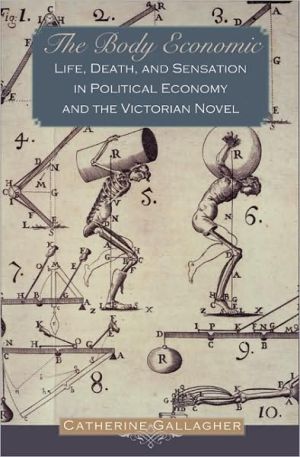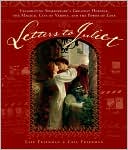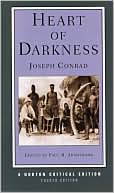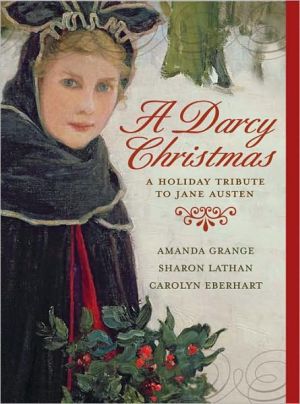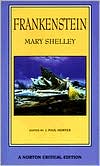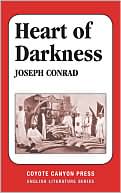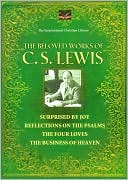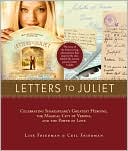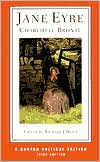The Body Economic: Life, Death, and Sensation in Political Economy and the Victorian Novel
The Body Economic revises the intellectual history of nineteenth-century Britain by demonstrating that political economists and the writers who often presented themselves as their literary antagonists actually held most of their basic social assumptions in common. Catherine Gallagher demonstrates that political economists and their Romantic and early-Victorian critics jointly relocated the idea of value from the realm of transcendent spirituality to that of organic "life," making human...
Search in google:
"A marvelous book. No other literary critic writes with such an assured and lucid grasp of both the novel and the history of economic theory."--James Eli Adams, Cornell University"This is a stunning and extremely important book whose scholarship is deep and sound from start to finish. Gallagher offers a fundamentally original and revisionary understanding of Victorian culture and of modernist literature as well."--George Levine, Rutgers University"Well-researched, clearly argued, and both original and provocative."--Patrick Brantlinger, Indiana UniversitySilvana Colella - Nineteenth-Century Studies[This] is an innovative and provocative book, brimming with fresh insights. . . . Gallagher's use of political economy to explain the most puzzling features of Dickens's novel is inspirational, and it will likely become a model for future studies.
The Body Economic Life, Death, and Sensation in Political Economy and the Victorian Novel \ \ By Catherine Gallagher Princeton University Press \ Copyright © 2005 Princeton University Press\ All right reserved.\ ISBN: 978-0-691-13630-1 \ \ \ Introduction There was a time, back in the last century, when most literary critics despised nineteenth-century British political economy. Our disdainful view of it had many sources-the American New Critics, the Leavisites, the Marxists, the early Victorian literati-but it seldom came from any serious encounters with texts by political economists. We preferred to get them secondhand, already packaged as the direct ideological justification of a particularly rapacious capitalism. After all, we had a stake in perpetuating our own image as their humanistic antagonists, the professionals dedicated to the unique, nonfungible properties of things and the autotelic, noninstrumental nature of people. We were the Kantians (or Coleridgeans), they were the Benthamites, and we lacked John Stuart Mill's reasons for attempting a dialectical synthesis. \ It is difficult to say just why all of this began to change during the last three decades. The stress that deconstruction placed on displacement in the literary text-the unstable connection between signifiers and signified and the relational nature of all meaning-brought the economic logic of substitution much closer than it had been to the dynamics of textual analysis. Marxist ideology critique also began focusing more intently on thesubtle ways in which poets, playwrights, and novelists, despite their overt proclamations, wrote within the dominant ideologies of their times. Reformulations of the concept of ideology also helped: it was seen to be less a set of explicit beliefs than a set of practices, which we repeat even while protesting against them, and which enfold almost inescapable underlying patterns of perception. The Foucauldian replacement of ideology critique with discourse analysis, moreover, allowed us not only to think beyond disciplinary borders to the organizing epistemes of a period but also to scrutinize the processes by which various discourses formed and differentiated themselves. The Foucauldian style of analysis had a particularly strong impact on nineteenth-century studies because that century was singled out as the period when the human sciences took their current form, bringing every aspect of human life into discourse. The discovery that literature played a part in the expansion of Man as a disciplinary object was then complemented by Bourdieu's sociological analyses of how different textual practices are constituted in diacritical opposition to others, so that the very nature of literature lies not in its independent substance but in its distinction from-and at times homologous duplication of-intellectual practices like economics. These theoretical innovations were paralleled by new kinds of criticism devoted to the economics of literature, both studies of formal relations between literary and economic writing and studies of the historical development of literature as an economic activity.\ Moreover, just as literary critics were exploring these topics, historians, political theorists, and even economists were revising and reinvigorating the history of economic theory. Instead of appearing to spring directly out of the ideological needs of industrial capitalism, the discipline we call "political economy" (that practiced by the "classical" economists, led by Adam Smith, Thomas Robert Malthus, and David Ricardo) has now been reconnected to the complex of late eighteenth-century intellectual endeavors gathered under the term "moral philosophy" (ethics, political philosophy, natural theology, conjectural history, and aesthetics) and has consequently acquired a pedigree that seems respectable to literary critics. We are also beginning to understand its central place among the developing human sciences of the nineteenth century, and its kinship especially with psychology and anthropology brings it closer to the orbit of nineteenth-century literature.\ These investigations have produced a lively new subfield of nineteenth-century British studies, combining literary and intellectual history. Works by Boyd Hilton, Stefan Collini, Donald Winch, Mary Poovey, Regenia Gagnier, Christopher Herbert, Philip Connell, Howard Caygill, and Maureen McLane have demonstrated that political economists and their literary antagonists had a great deal in common, which they were frequently unwilling to recognize. The present study is indebted to these earlier works, and it tries to combine their best aspects. For example, I've followed the lead of recent intellectual historians by taking political economy seriously as a discipline and not implying that it was merely a form of early industrial capitalist apologetics. This has led me to spend more time examining controversies among political economists than literary critics normally do; the book's second chapter, for example, dwells among political economists exclusively. It has also led me to give them the benefit of the doubt and assume that their theories were motivated by the same drive that animates most of us as professional intellectuals: a genuine desire to understand the phenomena they observed. It goes without saying that they did so within the terms and according to the protocols of certain historically determined mental operations (otherwise known as "ideologies"), which were by definition outside of their purview.\ Like many other literary critics who have lately addressed themselves to these thinkers, I try to reveal and analyze those operations and to trace their resemblance to the dynamics we also find in literary works of the period. Displaying such overarching discursive processes has become a specialty of literary critics during the last several decades, and it has allowed for a more synthetic and a less platitudinous picture of relations between nineteenth-century disciplines and the relatively undisciplined textual practices we call "literature." This study tries to explain how they were, at first, divided by common premises and then how their orientations toward each other shifted as those premises were revised in the course of the century. In the first two chapters, I trace a development in which political economists and their Romantic and early Victorian critics jointly relocated the idea of ultimate value from a realm of transcendent spiritual meanings to organic "Life" itself and made human sensations-especially pleasure and pain-the sources and signs of that value. I explore the stresses and contradictions attending this fundamental remaking of value within each discourse as well as the interchanges in which each tended to blame the other for its internal paradoxes.\ Political economy, though, was not a static or monolithic entity, even in its "orthodox" phase, so the first chapters of The Body Economic outline the dynamic through which it developed what I call its "bioeconomics" and its "somaeconomics." The first term, "bioeconomics," refers to political economy's concentration on the interconnections among populations, the food supply, modes of production and exchange, and their impact on life forms generally. In bioeconomics, "Life" is both the ultimate desideratum and the energy or force that circulates through organic and inorganic nature. Stressing the natural limitations on economic activity as well as the tendency of that activity to rearrange nature, bioeconomics was a set of concerns that derived primarily from the thought of Thomas Robert Malthus, whose Essay on Population (1797) was both a foundational text of classical political economy and a powerful critique of its theory of value.\ I employ the second term, "somaeconomics," to describe the theorization of economic behavior in terms of the emotional and sensual feelings that are both causes and consequences of economic exertions. This tradition of thought is deeply rooted in British empiricism as a theory of action complementing Lockean epistemology: just as we know only what comes through the senses, we are motivated primarily through the sensations (bodily and mental) of pleasure and pain. A long line of British "utilitarian" thinkers argued that we seek those things that produce pleasure and shun those that produce pain, but the "author" of the explicit sensationalism that often informed political economy was Jeremy Bentham. Although Adam Smith did not need Bentham to construct economic man (for Smith drew directly on medical vitalism), later political economists often referred to Bentham's pain/ pleasure calculus as the "natural" basis of self-interested behavior. In this tradition, "happiness" or "enjoyment" are the ultimate values, and wealth itself is defined as the "means of enjoyment." As we'll see, Benthamite somaeconomics led political economists into a series of paradoxes and was consequently rejected or minimized by some theorists, but it nevertheless had (and has) remarkable staying power.\ The bioeconomics initiated by Malthus, therefore, addressed the issues of life and death; the somaeconomics associated with Bentham dealt with those of pleasure and pain. Together they linked political economy to the life sciences of the early nineteenth century by concentrating on Man in nature, and on natural, corporeal Man. In the first two chapters of this book, I argue that political economy was one of the competing "organicisms" of the opening decades of the nineteenth century, in direct competition with Romanticism, and in subsequent chapters I demonstrate how it interacted with later developments in physiological, ecological, psychological, and anthropological sciences. Chapters 3 and 5 detail later episodes of Benthamite somaeconomics, whereas chapters 4 and 6 carry the story of Malthusian (and anti-Malthusian) bioeconomics into the later decades of the century.\ Chapters 3 and 4 also explain how the political economists' somaeconomics and bioeconomics found their way into the plots of Charles Dickens, the most popular novelist of the mid-Victorian period. They did so, I argue, not despite the novelist's overt hostility to political economy, but, more perplexingly, because of it. In readings of Hard Times and Our Mutual Friend, I try to explain what it was about political economy that ensured the continual return of its literary antagonists to its own logic. And I also analyze what it was about the novel (especially as written by Dickens) that made it such a receptive host for that logic.\ The extent of Dickens's hostile takeover of the problematics of somaeconomics and bioeconomics becomes even clearer when we turn to the relatively friendly ways in which George Eliot accommodated them. Political economists were common in George Eliot's milieu, where their connections to evolutionary theory, psychophysiology, and anthropology were understood and appreciated. Chapters 5 and 6 trace the links among these disciplines, revealing the kinship between Eliot's psychological sensationalism and neoclassical somaeconomics as well as the likeness between her plots of cultural development and those of Malthusian anthropological conjecture. George Eliot's acquaintance with political economy was at once direct and refracted through a spectrum of other disciplines, but her novelistic incorporations of it were not uncritical appropriations. Indeed, her knowledge of the varieties and uses of political economy made her a subtle and sophisticated analyst of its limits even as she relied on many of its fundamentals. The book's last chapters, on Daniel Deronda and Scenes of Clerical Life, attempt to show how political economy penetrated late nineteenth-century thinking about culture in ways that have subsequently become invisible to us.\ Somaeconomics and bioeconomics appear in numerous aspects of the four novels analyzed. They have stylistic, structural, and thematic manifestations; they shape the plots and modes of characterization. Above all, though, this book explores their appearance through that elusive creature known variously as the implied author, the authorial persona, or the author effect: the traces of authorial subjectivity left by Charles Dickens and George Eliot. Each of these novels bears the impressions of a creative subject who is emphatically also a productive economic subject as understood by nineteenth-century political economists: one whose life and feelings have been transmitted to the textual product. Moreover, each novel figures the transfer of sensation and vitality differently and presses different questions about the state of the subject. Can productive authors be happy? Can they stay alive through their works? Must their value decline as their careers mature? Does cultural progress depend on their suffering? Unlike the political economists, the novelists wrote themselves into the economic picture, and in so doing they bent the framework of the discourse and pushed its assumptions about life and feelings into the foreground, where they can be thoroughly scrutinized.\ This book may strike some readers as deficient in its treatment of the novelists' actual economic situations; admittedly, I have not found time to examine here the quite interesting forms of publishing, ownership, and marketing initiated by both Dickens and Eliot. Their innovative entrepreneurship is, therefore, among the many aspects of their economic lives unexplored in this book. I must also admit that I was unable to spend as much time on the subtle authorial effects of the political economists whose works I analyze as I was on those of the novelists. I plead guilty to having passively followed the lead of the discourses themselves in devoting so much more attention to novelistic than to political-economic authorship. Let me simply note here in passing the irony that authorship is not only a more prominent feature of literary than of political-economic texts but also a feature whose economic dimensions are more likely to be thematized by novelists than by political economists.\ The novels therefore gave political economy something it ordinarily lacked: a sustained encounter with the states of vitality and sensation it invented but failed to explore fully. Reading political economy through these novels while also reading the novels through political economy will, I hope, defamiliarize not only those two modes of writing but also the very notions of life and feeling on which they relied.\ (Continues...)\ \ \ \ \ Excerpted from The Body Economic by Catherine Gallagher\ Copyright © 2005 by Princeton University Press. Excerpted by permission.\ All rights reserved. No part of this excerpt may be reproduced or reprinted without permission in writing from the publisher.\ Excerpts are provided by Dial-A-Book Inc. solely for the personal use of visitors to this web site. \ \
Ch. 1The romantics and the political economists7Ch. 2Bioeconomics and somaeconomics : life and sensation in classical political economy35Ch. 3Hard times and the somaeconomics of the early Victorians62Ch. 4The bioeconomics of Our mutual friend86Ch. 5Daniel Deronda and the too much of literature118Ch. 6Malthusian anthropology and the aesthetics of sacrifice in Scenes of clerical life156
\ Nineteenth-Century LiteratureGallagher's brilliance as an intellectual historian has always resided in her ability to show us how ideas that look different are really alike, and how ideas we tend to lump together are really different. . . . The Body Economic . . . is a gift to the intelligence of every student of nineteenth-century culture.\ — Rosemarie Bodenheimer\ \ \ \ \ Modernism/Modernity[B]rings the history of economics into the heart of modern literature and literary theory, showing how much modernism's anti-bourgeois presentation of sex owed to a complex century-long debate about wealth and poverty. It is a rare achievement.\ — Gordon Bigelow\ \ \ Nineteenth-Century Studies[This] is an innovative and provocative book, brimming with fresh insights. . . . Gallagher's use of political economy to explain the most puzzling features of Dickens's novel is inspirational, and it will likely become a model for future studies.\ — Silvana Colella\ \ \ \ \ Modernism/modernity\ [B]rings the history of economics into the heart of modern literature and literary theory, showing how much modernism's anti-bourgeois presentation of sex owed to a complex century-long debate about wealth and poverty. It is a rare achievement.\ — Gordon Bigelow\ \ \ \ \ Nineteenth Century Studies\ [This] is an innovative and provocative book, brimming with fresh insights. . . . Gallagher's use of political economy to explain the most puzzling features of Dickens's novel is inspirational, and it will likely become a model for future studies.\ — Silvana Colella\ \ \ \ \ Journal of Victorian Culture\ - Margot Finn\ [An] astute and innovative reevaluation of the interplay between fiction and economic thought . . . [The Body Economic] represents a major contribution to literary studies and intellectual history.\ \ \ \ \ Field Day Review\ - Terry Eagleton\ In a stunningly innovative gesture, Gallagher points out that the thin-blooded political economists and the warm-hearted Romantic organicists of early nineteenth-century Britain had a good deal more in common than is generally supposed.\ \ \ \ \ Nineteenth-Century Literature\ - Rosemarie Bodenheimer\ Gallagher's brilliance as an intellectual historian has always resided in her ability to show us how ideas that look different are really alike, and how ideas we tend to lump together are really different. . . . The Body Economic . . . is a gift to the intelligence of every student of nineteenth-century culture.\ \ \ \ \ Modernism/modernity\ - Gordon Bigelow\ [B]rings the history of economics into the heart of modern literature and literary theory, showing how much modernism's anti-bourgeois presentation of sex owed to a complex century-long debate about wealth and poverty. It is a rare achievement.\ \ \ \ \ Modern Language Review\ - Roger Ebbatson\ In her commanding and authoritative new study Catherine Gallagher['s] . . . The Body Economic will doubtless become required reading for anyone seeking to understand the complex lines of affiliation and resistance between economic theory and the literary text in the mid-Victorian period.\ \ \ \ \ Nineteenth Century Studies\ - Silvana Colella\ [This] is an innovative and provocative book, brimming with fresh insights. . . . Gallagher's use of political economy to explain the most puzzling features of Dickens's novel is inspirational, and it will likely become a model for future studies.\ \ \ \ \ Journal of Victorian Culture[An] astute and innovative reevaluation of the interplay between fiction and economic thought . . . [The Body Economic] represents a major contribution to literary studies and intellectual history.\ — Margot Finn\ \ \ \ \ Field Day ReviewIn a stunningly innovative gesture, Gallagher points out that the thin-blooded political economists and the warm-hearted Romantic organicists of early nineteenth-century Britain had a good deal more in common than is generally supposed.\ — Terry Eagleton\ \ \ \ \ Victorian StudiesMany of Gallagher's local observations and textual analyses are stunningly perceptive and original. . . . Gallagher's treatments of the four novels she examines in detail are also complex and rewarding. Her analysis of Daniel Deronda, which turns on the resemblance between Jevon's marginal utility formula and Eliot's exploration of Gwendolen's and Elit's storries about being redundant—'a final increment' that can never be as desirable as its predecessors—is a tour de force that illuminates the novel in fascinating ways.\ \ \ \ \ Dickens QuarterlyWith admirable economy and a clear sense of purpose, The Body Economic explores and collapses the gulf popularly held to exist between the values and mindsets of post-Enlightenment political economists, represented here by Bentham and Malthus, and those of nineteenth-century imaginative novelists, here represented in the mid-Victorian phase by Dickens, and in the late, by George Eliot. . . . [An] original and considerable accomplishment.\ \ \ \ \ Modern Language ReviewIn her commanding and authoritative new study Catherine Gallagher['s] . . . The Body Economic will doubtless become required reading for anyone seeking to understand the complex lines of affiliation and resistance between economic theory and the literary text in the mid-Victorian period.\ — Roger Ebbatson\ \
